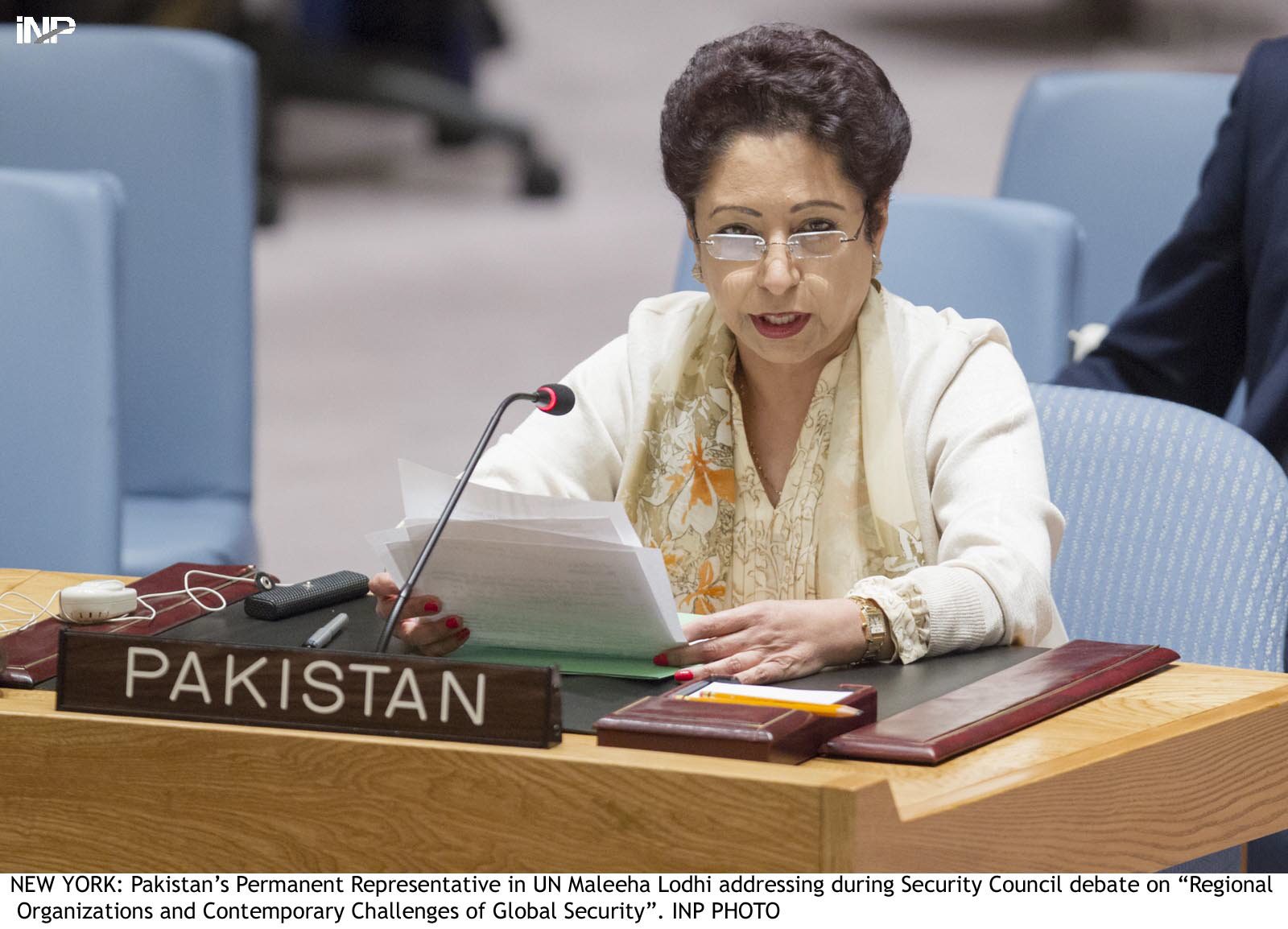
"Fulfillment of the long-held promise of self-determination to the people of Kashmir is urgent as well as indispensable in establishing lasting peace and stability in South Asia," Lodhi said, while addressing the General Assembly's Third Committee which deals with social, humanitarian and cultural questions.
'Peace in South Asia linked to solution of Kashmir dispute'
"Pakistan, India and the international community still await the implementation of the council's resolutions on Kashmir despite the fact that they were supported by all," the envoy added.
Further, during a debate on the 'Right of peoples to self-determination,' Lodhi said the struggle to exercise this right freely should not be set aside by deliberately conflating it with terrorism.
"It is a travesty of law and morality that decades after these resolutions were adopted, the people of Jammu and Kashmir continue to be deprived of their fundamental right," she said.
Pakistan committed to peaceful resolution of Kashmir dispute, PM tells Hurriyat leaders
"Generation after generation of Kashmiris have seen only broken pledges and ruthless oppression," the envoy added.
During the address, the ambassador reiterated Prime Minister Nawaz Sharif's stance on the Kashmir issue and his address to UN General Assembly in September during which he requested for a peaceful resolution, taking into consideration the wishes of the people of Kashmir.
"The violation of human rights remained rampant, as over 100,000 had died in their struggle for self-determination," she explained.
Nawaz urges UN secretary general on early implementation of UNSC resolutions on Kashmir
Discussing the suffering of Kashmiri women, children and men, the envoy said that the issue is big enough to move the international community.
The 70th anniversary of the UN ought to be a catalyst spurring the body into action, she argued.
Further, commenting on racism and intolerance, Lodhi stressed on Pakistan's stance on racism and how it has always opposed racism as well as religious intolerance in any given form.
India says Pakistan raising Kashmir issue in UN is 'clear interference'
"A contemporary form of racism is religious intolerance and discrimination on the basis of religion," she said.
"Faith-based discrimination, stereotyping of people on the basis of their belief, incitement to violence through hate speech and acts of desecration are not only inconsistent with fundamental human rights and freedoms, but also jeopardize social harmony, global peace and security," the ambassador added.

1721377568-0/BeFunky-collage-(18)1721377568-0-165x106.webp)




1732603037-0/BeFunk_§_]__-(51)1732603037-0.jpg)
1732610150-0/Untitled-design-(3)1732610150-0-270x192.webp)

1732610854-0/Untitled-design-(68)1732610854-0-270x192.webp)
1732608486-0/BeFunk_§_]__-(54)1732608486-0.jpg)












COMMENTS (19)
Comments are moderated and generally will be posted if they are on-topic and not abusive.
For more information, please see our Comments FAQ